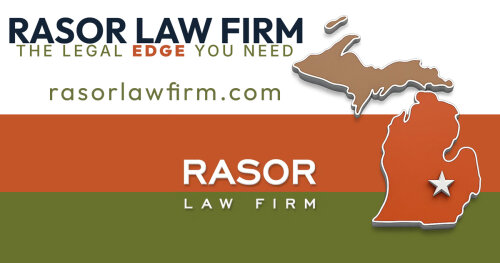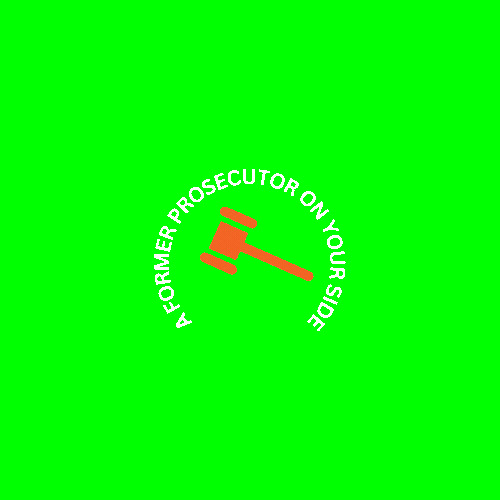Best Juvenile Law Lawyers in Maryland
Share your needs with us, get contacted by law firms.
Free. Takes 2 min.
Or refine your search by selecting a city:
List of the best lawyers in Maryland, United States
About Juvenile Law in Maryland, United States
Juvenile law in Maryland covers the rights, protections, and legal processes that apply to minors typically under the age of 18 who are accused of committing delinquent acts or require court intervention for their welfare. The system emphasizes rehabilitation and education rather than punishment. Maryland’s juvenile justice process is distinct from adult criminal courts, focusing on what is in the best interest of the child while balancing community safety and accountability.
Why You May Need a Lawyer
Legal issues involving juveniles can be complex and emotionally charged. If your child or a child you care for becomes involved in the juvenile justice system, it is vital to have an attorney represent their best interests. Common situations in which legal help is essential include:
- Facing allegations of criminal behavior or delinquent acts
- Being subject to Child in Need of Assistance (CINA) proceedings
- Concerns about school disciplinary actions with criminal implications
- Legal questions regarding the expungement or sealing of juvenile records
- Navigating out-of-home placements, foster care, or guardianship issues
- Issues of child abuse or neglect leading to court proceedings
- Parental rights challenges, reunification, or emancipation inquiries
A specialized juvenile law attorney can guide you through court proceedings, protect the minor’s rights, and work to secure the best possible outcome for your family.
Local Laws Overview
Maryland juvenile law sets unique processes for minors involved in the legal system. Key aspects include:
- Delinquency vs. Status Offenses: Delinquent acts are those that would be considered crimes if committed by adults, while status offenses, like truancy or curfew violations, are only illegal due to the youth’s age.
- Ages of Jurisdiction: Juvenile courts typically have authority over individuals under 18. In some serious cases, minors as young as 14 can be charged as adults.
- Detention Hearings: Juvenile suspects must have a prompt hearing, usually within 24 hours, to determine if they should remain in detention.
- The Role of Department of Juvenile Services (DJS): The DJS evaluates youth offenders, recommends services, and may supervise probation or placement.
- Sealing and Expungement: Maryland allows for most juvenile records to be sealed or expunged to prevent long-term impacts on a minor’s future.
- Legal Rights: Juveniles have the right to counsel, to remain silent, and other procedural protections similar to adults but adapted for their age and understanding.
Understanding these local laws is essential so that juveniles and their guardians know what to expect and how to protect their rights during legal proceedings.
Frequently Asked Questions
What is considered a juvenile in Maryland?
In Maryland, a juvenile is generally a person under the age of 18 who is alleged to have committed a delinquent act or is in need of assistance or supervision from the court.
What happens if a juvenile is charged with a crime?
Instead of adult criminal court, most cases go to juvenile court. There, the focus is on rehabilitation, and a variety of outcomes are possible, including probation, community service, diversion programs, or, in rare circumstances, placement in a youth facility.
Can a juvenile be tried as an adult?
Yes, in Maryland, certain serious offenses or if the juvenile is of a certain age (usually 14 or older), the court may transfer the case to adult criminal court. This is known as waiver or transfer.
Do juveniles have the right to a lawyer?
Absolutely. Juveniles in Maryland have the right to legal counsel during every stage of the juvenile justice process. If the family cannot afford a lawyer, the court will appoint one.
Can a juvenile be detained before trial?
Yes, but only after a hearing where a judge determines if detention is necessary for the child’s safety or community well-being. Detention is not used as punishment before the case is resolved.
Are juvenile records public in Maryland?
Juvenile court records in Maryland are generally confidential and not accessible to the public. Certain exceptions exist, especially when minors are tried as adults.
How can juvenile records be expunged?
Most juvenile records can be sealed or expunged once the youth is no longer under court supervision and meets eligibility requirements. Legal assistance can help with this process.
What is a Child in Need of Assistance (CINA) case?
CINA cases involve children who have been abused, neglected, or have no one to care for them. The court aims to provide safety and necessary services, often involving social workers and foster care.
What if my child is questioned by the police?
Juveniles have the right to remain silent and to have an attorney present during police questioning. Parents or guardians are typically notified, but it is wise to contact a lawyer immediately before the child speaks with law enforcement.
What should I do if my child is facing school discipline and possible legal consequences?
If your child faces suspension, expulsion, or arrest at school, speak with a juvenile law attorney as soon as possible. Early legal intervention can help protect your child’s educational and legal rights.
Additional Resources
If you need more information or support, the following resources may help:
- Maryland Department of Juvenile Services
- Maryland Judiciary - Juvenile Causes Section
- Maryland Legal Aid
- Office of the Public Defender, Juvenile Division
- Local County Bar Associations offering lawyer referral services
- National Juvenile Defender Center
Next Steps
If you or your child are facing a juvenile law issue in Maryland, consider the following steps:
- Gather all relevant information, including court documents, police reports, and any correspondence from schools or agencies.
- Make a list of questions or concerns about your child’s case or situation.
- Contact a qualified juvenile law attorney as soon as possible. You may also reach out to the Maryland Office of the Public Defender if you cannot afford a private attorney.
- Stay engaged with the legal process and attend all required hearings or meetings.
- Follow attorney guidance on best practices for interacting with court officials, police, and social workers.
Early legal intervention and advocacy are crucial for safeguarding your child’s rights and securing the best possible future. Do not hesitate to seek professional help if you are unsure how to proceed.
Lawzana helps you find the best lawyers and law firms in Maryland through a curated and pre-screened list of qualified legal professionals. Our platform offers rankings and detailed profiles of attorneys and law firms, allowing you to compare based on practice areas, including Juvenile Law, experience, and client feedback.
Each profile includes a description of the firm's areas of practice, client reviews, team members and partners, year of establishment, spoken languages, office locations, contact information, social media presence, and any published articles or resources. Most firms on our platform speak English and are experienced in both local and international legal matters.
Get a quote from top-rated law firms in Maryland, United States — quickly, securely, and without unnecessary hassle.
Disclaimer:
The information provided on this page is for general informational purposes only and does not constitute legal advice. While we strive to ensure the accuracy and relevance of the content, legal information may change over time, and interpretations of the law can vary. You should always consult with a qualified legal professional for advice specific to your situation.
We disclaim all liability for actions taken or not taken based on the content of this page. If you believe any information is incorrect or outdated, please contact us, and we will review and update it where appropriate.
Browse juvenile law law firms by city in Maryland
Refine your search by selecting a city.















